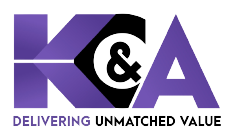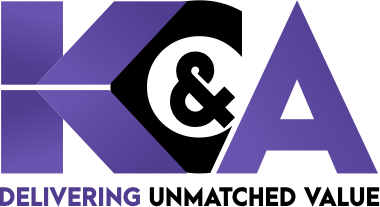The implications of the Tax Cuts and Jobs Act (“TCJA”) of 2017, specifically its provision that mandates taxpayers to capitalize and amortize research and experimental (R&E) expenditures under Section 174 beginning in Tax Year 2022 has proved to be an uphill battle. Previously, taxpayers had the choice to deduct R&E costs related to their trade or business in the same taxable year they were incurred. However, starting in the 2022 tax year, R&E costs must be capitalized and amortized over a 5-year period for domestic expenses and a 15-year period for foreign research, beginning from the midpoint of the taxable year when these expenditures are paid or incurred.
Presently, there are bills under consideration in both the House and Senate that seek to revert Section 174 to its previous state, allowing for the deduction of R&E expenditures in the current year.
House Bill: On April 18, 2023, Congressmen Ron Estes (R-KS) and John Larson (D-CT) introduced the American Innovation and R&D Competitiveness Act of 2023, also known as H.R.2673. This bill has garnered support from 87 cosponsors, including 44 Democrats and 43 Republicans. Congressman Estes emphasized the importance of incentivizing businesses to conduct research and development within the United States. The objective of this bill is to make immediate expensing of R&E expenditures a permanent fixture in the tax code. Its language is limited to reverting Section 174 to the deduction and capitalization options that were in effect before the TCJA. The bill also includes conforming amendments to Sections 41 and 280C, allowing for the current-year expensing of Section 174 expenses.
Senate Bills: Similarly, two bills have been referred to the US Senate Finance Committee that aim to reinstate the ability to deduct expenses in the current year under Section 174.
In February, Senator Ted Cruz (R-TX) introduced S.314, which proposes to repeal the TCJA changes to Section 174. The bill, known as the Cost Recovery and Expensing Acceleration to Transform the Economy and Jumpstart Opportunities for Businesses and Startups Act or the CREATE JOBS Act, also introduces changes to the timing for expensing and depreciating specific property under Section 168.
In March, Senators Maggie Hassan (D-NH) and Todd Young (R-IN) introduced S.866. This bill, titled The American Innovation and Jobs Act, shares similar provisions with S.314 and H.R.2673, aiming to revert Section 174 to its pre-TCJA state. The bill enjoys broad bipartisan support, with over 25 cosponsors.
Additionally, The American Innovation and Jobs Act proposes significant expansions for Qualified Small Businesses (QSBs) within the Research & Development (R&D) Tax Credit. Senator Hassan previously sponsored legislation that expanded the R&D Tax Credit for QSBs as part of the Inflation Reduction Act, doubling the amount of the R&D Tax Credit that can be allocated towards payroll taxes annually. If enacted as written, this new bill would have the following effects for qualifying companies:
- Incremental increase of the limit for payroll allocation from $500,000 in tax years starting after December 31, 2023, to $750,000 by 2032.
- Extension of the eligibility period to elect to apply the R&D Tax Credit towards payroll taxes from 5 years to 8 years.
- Modification of the gross receipts eligibility threshold from $5 million to $15 million, with a de minimis threshold of $25,000.
- Adjustment of the calculation for the Alternative Simplified Credit to provide a more favorable outcome.
- Conversion of the QSB credit from a non-refundable to a refundable tax credit, enabling qualifying companies to receive the full value of the credit in the current tax year.
Planning Ahead: While we are encouraged by the bipartisan support for H.R.2673 and S.866, it is important to note that the capitalization and amortization requirements of Section 174 are still in effect. As we monitor Congress for updates on Section 174, it is crucial for taxpayers to engage in discussions with their tax preparers regarding the impact of this section and the potential changes that may occur.
Given the current state of Section 174, many taxpayers face increased tax liabilities, making it more imperative than ever to explore tax credits and supplementary deductions.
Seek advice from experts at KC&A to navigate this evolving landscape and receive guidance on the available incentives for your unique business.


